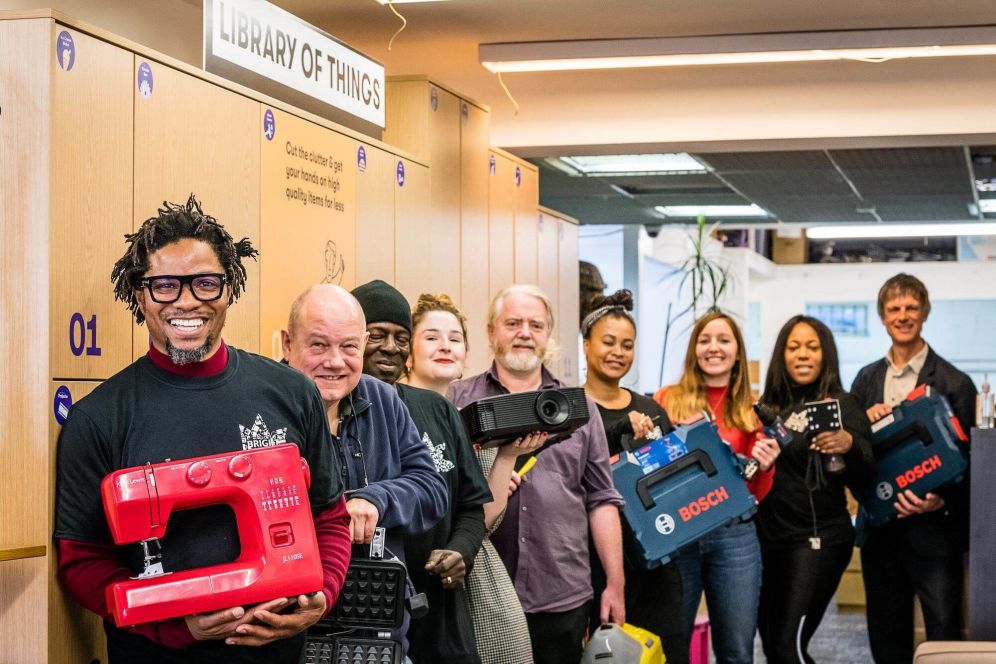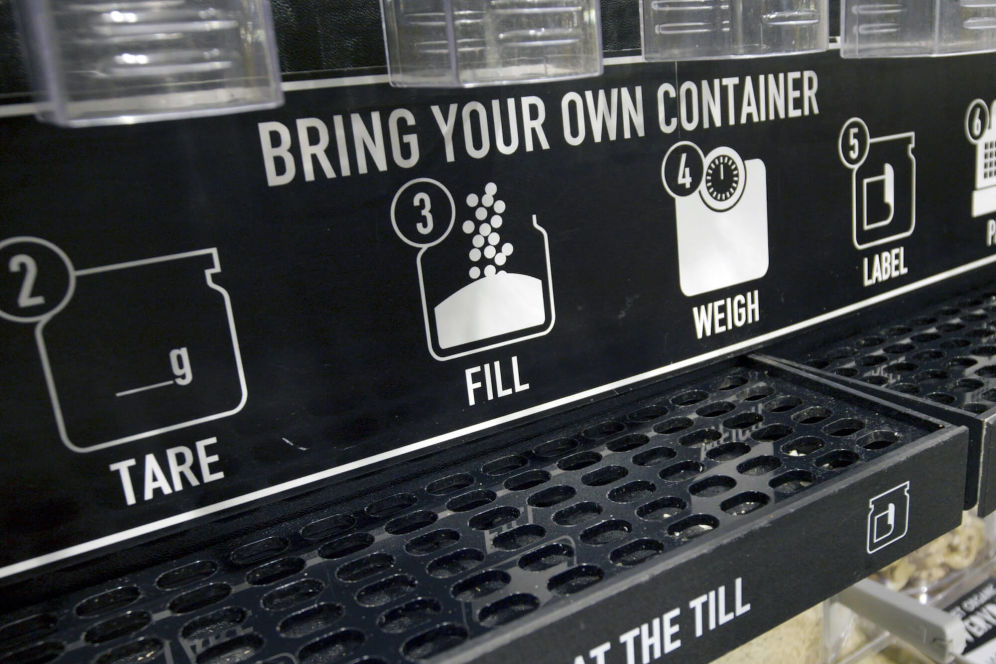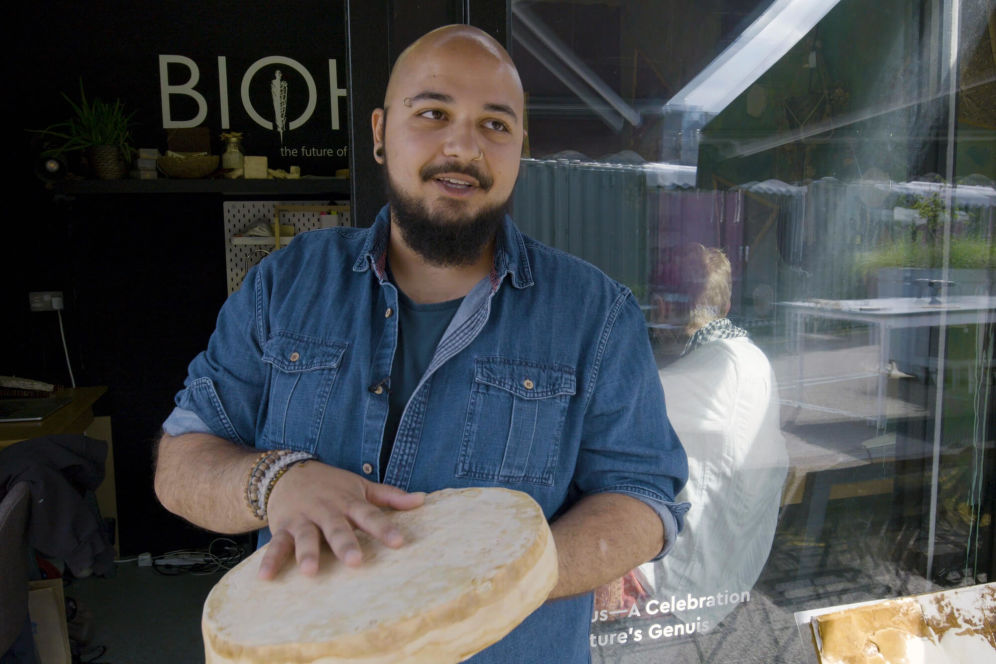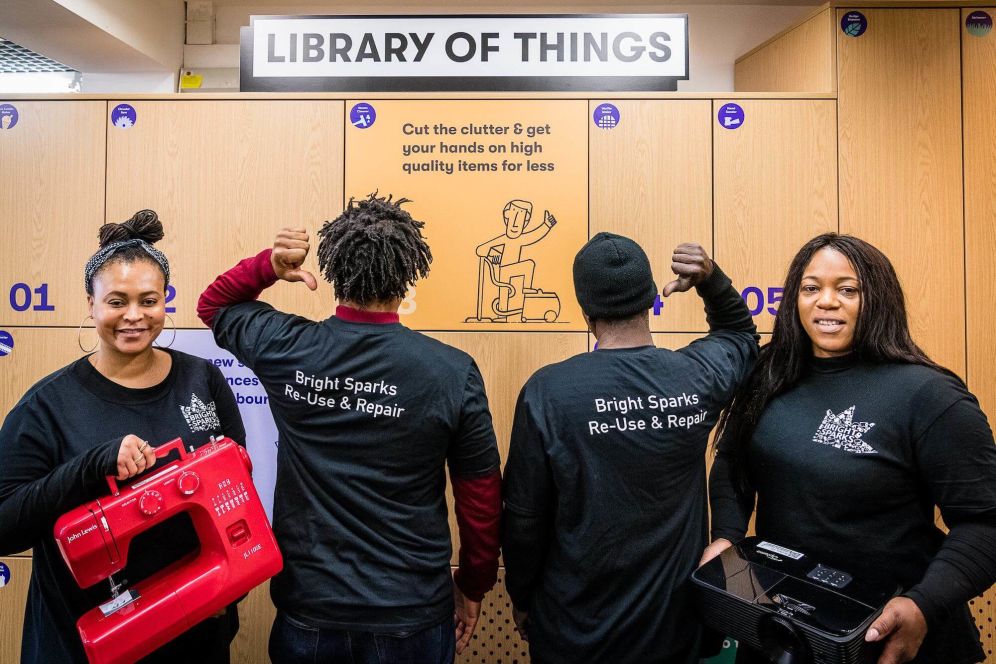ReLondon’s Business Transformation programme is nurturing a vibrant ecosystem of circular businesses, supporting jobs and resilient economic growth in London.
Small- and medium- enterprises (SMEs) are part of the fabric of London, and they are key to accelerating the city’s transition to a circular economy. ReLondon’s SME support programme Business Transformation helps companies either adopt circular practices, or – if they already have a circular business model – mainstream and scale their business. Since 2017, ReLondon has offered advisory and matchmaking services to over 350 SMEs and supported the launch of more than 80 circular products, processes or services.

The role of SMEs in the circular economy transition
SMEs can play a key role in broadening the range of circular products and services available and making circular options convenient for customers. Research shows that most Londoners factor climate change into their everyday decisions, but that shoppers still prioritise price, convenience and choice over circular economycircular economyA systems solution framework that tackles global challenges like climate change, biodiversity loss, waste, and pollution. It is based on three principles, driven by design: eliminate waste and pollution, circulate products and materials (at their highest value), and regenerate nature. considerations. SMEs are both close enough to their customers to respond to their needs, and small enough to quickly experiment with new business models.
What’s more, they represent a huge proportion of the city’s enterprise: 99% of businesses in London are SMEs; they are responsible for more than half of all commercial waste generated in the city, and represent significant opportunities for reductions in waste, pollution, and carbon emissions. Harnessing these opportunities could help realise the full potential of the circular economy, which already contributes around £11bn to London’s economy, and could create over a quarter of a million jobs in the city by 2030.
Growing an ecosystem of circular SMEs in London
But for established SMEs and independent businesses based on linear value chains, exploring or adopting a circular model for the first time can be daunting and time-consuming. Equally, early-stage circular start-ups face burdens, additional to the usual challenges of starting a business, such as structural barriers making it difficult to compete on price. Securing the right financing is also difficult, which might explain why, despite London being a global leader in climate tech investment, circular start-ups still only represent 10-20% of investments made across the portfolio.

Unpackaged, one of the SMEs that Business Transformation has supported, is a refillable packaging consultancy that helps retailers incorporate packaging-free solutions into their stores.
The Business Transformation programme seeks to help London-based SMEs overcome these barriers and create attractive circular products and services, by offering advice, grants, matchmaking and community services. It is run by ReLondon, a partnership between the Mayor of London and its boroughs, created as a statutory body to reduce waste and increase rates of recycling, repairrepairOperation by which a faulty or broken product or component is returned back to a usable state to fulfil its intended use., sharingsharingThe use of a product by multiple users. It is a practice that retains the highest value of a product by extending its use period. and renting across London. It consists of a core team of nine staff within ReLondon, supported by ReLondon colleagues in the Local Authority Support and Behaviour Change teams, as well as external partners.
Business Transformation works with both circular economy start-ups, and established businesses in the food, fashion, plastics, built environment, and electricals sectors to help them:
Redesign, strengthen and scale their business model to align with the principles of the circular economy, with benefits including cost savings, growth in customer base, and new revenue opportunities.
Validate existing circular business models, stress-testing assumptions and finding ways to improve viability and sustainability, with recommendations summarised in a tailor-made circularity report.
Amplify the reach and commercial opportunities of circular businesses by connecting them with public sector organisations, potential clients and partners, and investors via an online Circular Economy Matchmaker and in-person, sector-specific events.
The initiative channels grant funding towards circular economy projects, such as a £390k grant package delivered as part of Mayor of London’s Green New Deal fund, and £140k in Islington Council’s circular economy grant scheme. It also publishes insights and circular business success stories to guide and inspire other businesses.

Biohm, one of the SMEs that Business Transformation has supported, explores how bio-based materials such as mycelium fungus and food waste can be used to create construction materials for commercial buildings and domestic homes.
Impact
Business Transformation is helping to create a diverse, inclusive circular economy business ecosystem in London. Already it has:
helped over 350 London-based SMEs become more circular - 74% of which are female-led or shared ownership, and 37% of which are led by individuals from Black, Asian or minority ethnic groups (compared to a national representation of 6% for small business owners).
offered more than 6,000 hours of support to both innovators and establishedbusinesses
helped secure over GBP 5 million worth of capital for circular businesses across both private and public funds
supported the creation or safeguarding of around 600 jobs
supported the launch of more than 80 circular products, processes or services.
Furthermore, by transforming waste challenges into business opportunities, the work of the programme also contributes to meeting London’s goal of zero waste to landfill by 2026.

London’s Library of Things, one of the SMEs that Business Transformation has supported, affordably rents out useful items from local spaces and helps neighbours share practical skills.
The journey
ReLondon has been providing circular business support to SMEs since 2017, when London’s Circular Economy Route Map identified SMEs as integral to developing the circular economy in the city due to their contribution to private business sector turnover in the city.
Key challenges faced by SMEs in adopting circular business models were identified – including obtaining financing, developing transformative mindsets, promoting circular products, and getting support from supply chains and support services.
To address these challenges, Advance London was created, a three-year business support programme for SMEs that ran until December 2019. The programme engaged directly with SMEs already working on the circular economy transition, as well as investors, accelerators, workspaces and other organisations. It formed partnerships with the Federation of Small Businesses, the London Growth Hub, local chambers of commerce and business improvement districts, while iterating and refining the package of services to best help businesses.
The Advance London programme became ReLondon’s Business Transformation in 2021, and its focus shifted to incorporate the transformation of established businesses as well as supporting circular start-ups.
Measuring progress
Impact is measured through economic indicators such as new job opportunities created, new products, services or processes introduced, and self-reported commercial and operational benefits (e.g. changes in revenue/cost base). Environmental indicators are also tracked, such as reduction of waste and – where possible – how these translate into reduced greenhouse gas emissions. Feedback is also collected from participating businesses at regular intervals.
Lessons learned
Working with established businesses as well as circular start-ups can help to ensure workers in linear industries are not left behind in the circular economy transition. Making a strong and evidence-based case for the circular economy, particularly around business resilience and cost savings, has been crucial to work effectively with businesses that are new to the concept.
Businesses know what businesses need; consultation is key. Having direct contact with SMEs and regularly gathering feedback can provide a real-time understanding of SME needs and challenges, helping to inform the evolution of the programme. Such interactions have helped to package circular economy expertise and insights in a way that is useful to businesses.
Capturing and analysing data along the way can inform more effective insights, including how the circular economy can create new jobs and help low-income households in London. Such insights can both inform further policy decisions, and help businesses identify relevant areas for innovation.
A collaborative, agile approach can increase reach. Collaborating with ReLondon’s wider activities, networks and initiatives (such as the Food Flagship Initiative and CIRCuIT), and with the Greater London Authority’s policy initiatives (such as the Mayor’s Entrepreneur Award or the Green New Deal and Better Futures), increased the programme’s depth, reach and ability to address key business needs.

Toast, one of the SMEs that Business Transformation has supported, makes planet-saving craft beer using surplus fresh bread.







